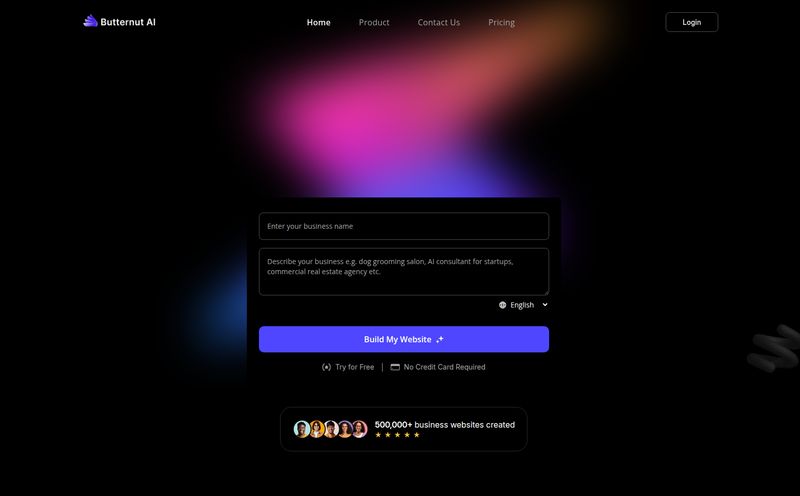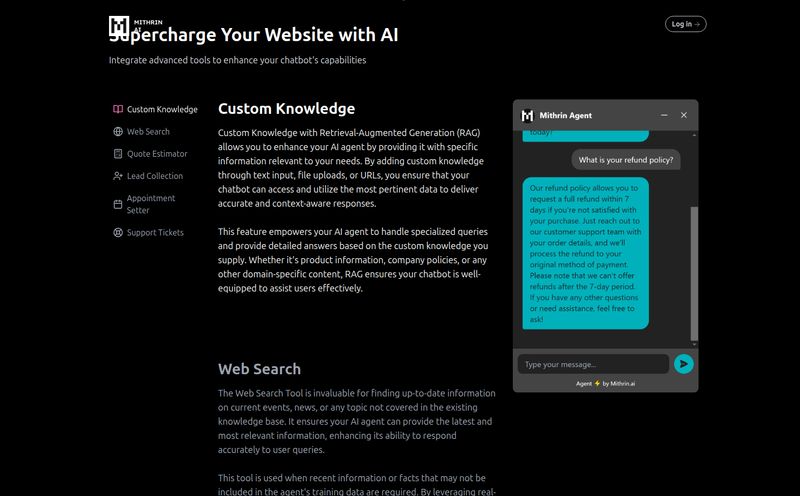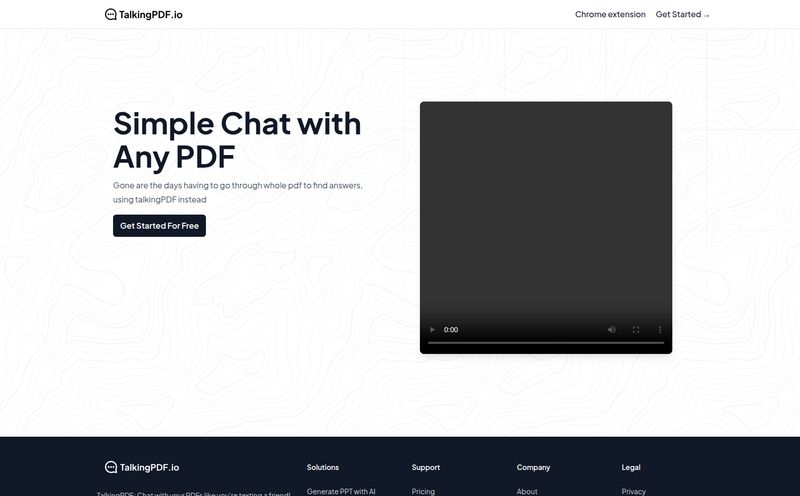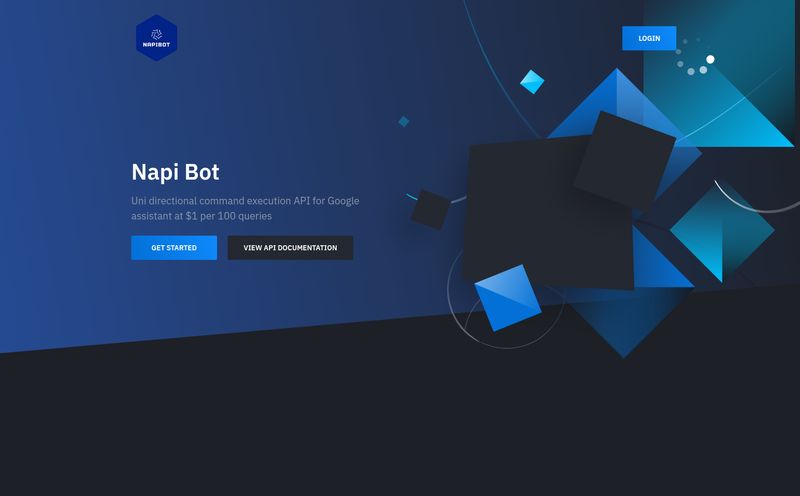We’ve all been there. Day one on a new project, you clone the repo, open it up, and your heart just sinks. You're staring at a digital labyrinth built by a dozen different developers over five years, with documentation that’s… optimistic, at best. The ‘WTFs per minute’ metric goes through the roof. It’s less like software engineering and more like archeology, digging through layers of forgotten logic hoping you don't bring the whole temple crashing down.
For the past couple of years, the big promise has been AI. GitHub Copilot and its cousins have flooded the market, and don’t get me wrong, they're neat. They're fantastic at spitting out boilerplate, finishing your line of code, and sometimes even guessing the function you were about to write. But I've always felt a disconnect. They’re great at syntax, but they often suck at context. They don’t know why that legacy function was written in such a bizarre way. They can't tell you the story of the code.
So when I stumble across a tool that claims to be an “AI expert for codebases,” my ears perk up. Especially when it’s from someone with some serious street cred. This isn’t just another GPT wrapper with a fancy UI. This feels different.
So, What is This “AI Expert for Codebases”?
The project I’m talking about comes from Julia Turc. If that name doesn't ring a bell, it should. Formerly at Google Research, now a YC-backed founder, she’s one of those people who actually understands the deep, gnarly bits of AI that make these tools tick. She has a great YouTube channel where she explains complex AI concepts in a way that, as she puts it, is “somewhat coherent.” I love that humility. It tells me she's more focused on substance than sizzle.
Her platform isn’t just another code generator. The core idea is chat-oriented programming. Think about that for a second. It’s not a one-way street where the AI suggests code. It’s a two-way conversation. It’s like pulling up a chair next to a senior architect who has been on the project since day one and just… asking questions. It's designed to help you understand, navigate, and untangle the complexities of modern software development.
I’ve always said the best tools are the ones that augment intelligence, not just replace effort. This seems to be built entirely on that philosophy.
More Than Just a Chatbot: The Core Features
Okay, let's get into the nuts and bolts. What makes this thing tick, and why am I even a little bit excited about it? It boils down to a few key ideas that, in my experience, address the real-world friction of being a developer.
A Conversation with Your Code
The whole “chat-oriented” thing is the main event. Imagine loading up your team’s sprawling microservices architecture and being able to ask, “Hey, walk me through the payment processing flow.” Or, “Where are the API keys for the Stripe integration stored, and what service uses them?” This changes the game from hunting and pecking through files to having a genuine dialogue. It’s less like a parrot repeating what its seen and more like a wise old librarian who knows not just where every book is, but the story contained within each one. That's a powerful shift.

Visit AI expert for codebases
Search That Actually Works
We've all abused `Ctrl+F` (or `Cmd+F` for my Mac friends) to find a specific function or variable. But what if you don't know the name? What if you're looking for a concept? This is where semantic search comes in. The tool allows you to search your codebase for ideas, not just strings of text. Asking “show me where we handle user session invalidation” is infinitely more powerful than guessing 50 different function names like `invalidateSession`, `deleteToken`, `user_logout_session_killer`, etc. As someone obsessed with traffic and conversions, I can tell you that finding information quickly is half the battle. This is the developer equivalent of that.
Under the Hood: LangChain, Transformers, and LlamaIndex
This isn't just marketing fluff. For those of us who follow AI trends, seeing these names is a big deal. Transformers is the foundational architecture that powers things like ChatGPT—it’s the powerful brain. But a brain is useless without senses. That’s where LangChain and LlamaIndex come in. They are the frameworks that connect that powerful AI brain to specific data sources, in this case, your codebase. They're the plumbing that allows the AI to ingest, index, and understand the unique context of your project. This technical underpinning is what separates a true “expert” system from a generic chatbot that happens to know Python.
Your Code Stays Your Code: Private Repos
Let's tackle the elephant in the room: security. No company in their right mind is going to feed their proprietary source code to a random public AI. The platform explicitly states it supports private codebases. This is non-negotiable for any serious professional use. It shows an understanding of the market and the real-world concerns of CTOs and engineering managers. Your secret sauce should remain secret.
The Real-World Impact on Developer Workflow
So what does all this mean for the daily grind? From my perspective as someone who looks at team efficiency and output, the implications are pretty huge.
First, think about onboarding. A new developer could be productive in days, not weeks. Instead of pestering senior devs with basic questions, they can ask the AI. This frees up your most valuable people to work on hard problems. Second, it's a massive blow against technical debt and code rot. Those scary, undocumented corners of the app? Now you have a guide to help you explore and refactor them safely. Finally, it acts as a form of living documentation. Why write exhaustive Confluence pages that will be outdated in a week when the code can just explain itself?
It’s all about reducing friction. Every minute a developer spends trying to understand old code is a minute they aren't building a new feature. And in the fast-paced world of tech, that speed is everything.
Okay, What's the Catch? (And the Cost)
Alright, I'm not a complete shill. No tool is perfect, and it's important to be skeptical. Based on the info available, here are my potential reservations.
- The AI is Only as Good as the Model. This is a universal truth. The effectiveness of the whole platform hinges on the quality of the underlying AI. While the use of modern frameworks is promising, its ability to handle truly byzantine or poorly written code remains to be seen.
- The Black Box. As is common with proprietary AI, we don't know the exact architecture or the fine-tuning data. We have to trust the expertise of the creator, which, in this case, is a pretty good bet, but it's still a trust fall.
- The Price Tag. Now for the big question: how much? There is no public pricing page. Instead, Julia’s site has a “Book a call” link. This tells me a few things. It’s likely aimed at teams and enterprises, not individual hobbyists. It's a high-touch sales process, which usually means a premium product. So, this probably isn't going to be a cheap $10/month subscription. You're paying for a specialized, high-value tool, and the price will likely reflect that.
My Final Take: Is This the Future of Pair Programming?
I’ve seen a lot of AI tools come and go. Most of them are just chasing the hype cycle. This one feels different. The focus on understanding and conversation over simple code generation is, for me, the right path forward. It's a more mature vision of what an AI-developer partnership should look like.
The fact that it’s being built by someone with a deep background in AI research from a place like Google adds a layer of confidence that’s hard to ignore. I’d rather bet on a tool built by a practitioner and an expert than one built by a marketing team.
This isn't about an AI that will take your job. It's about an AI that will take the most annoying, tedious, and frustrating parts of your job, freeing you up to do what you do best: solve problems and build amazing things. And that’s a future I’m genuinely excited about. It's an assistant that's finally read the documentation, even the parts that were never written down.
Frequently Asked Questions
- Is this just another version of GitHub Copilot?
- Not really. While both are AI coding assistants, Copilot focuses more on real-time code generation and autocompletion. This tool is designed for a deeper understanding and exploration of an entire codebase through a conversational, chat-like interface. It's more about analysis than generation.
- How does it handle my private code? Is it secure?
- The platform is designed to work with private codebases. While specific security protocols aren't detailed publicly, this is a core feature, suggesting that security and privacy are primary considerations, which is essential for any business or enterprise customer.
- Who is this tool best for?
- Given the focus on understanding complex codebases and the likely enterprise pricing model, this tool seems best suited for professional software teams at startups and large companies, especially those dealing with legacy systems, complex architectures, or frequent onboarding of new developers.
- What AI frameworks does it use?
- It's built on a modern AI stack, leveraging well-respected frameworks like Transformers (for the core intelligence), and LangChain and LlamaIndex (for connecting the AI to the specific context of a codebase).
- How much does it cost?
- There is no public pricing available. Interested parties are encouraged to “Book a call” via the founder’s website, which indicates a custom or enterprise-focused pricing structure.
- Who is Julia Turc?
- Julia Turc is a Y Combinator-backed founder, formerly a researcher at Google Research. She is an expert in deep AI concepts and is the driving force behind this new platform.
Conclusion
Navigating the jungle of AI tools can be exhausting. There's a lot of noise and very little signal. But every now and then, you find a project that just makes sense. A tool that solves a real, painful problem in an intelligent way. This AI expert for codebases, spearheaded by Julia Turc, is one of those signals. It represents a move toward a more symbiotic relationship with AI, one where technology empowers our understanding rather than just automating our keystrokes. If your team is drowning in undocumented code, this might just be the lifeline you've been looking for.
Reference and Sources
For more information on Julia Turc and her work, you can find her on various platforms:
- YouTube: For her explanations of AI concepts.
- X / Twitter: For real-time updates and insights.
- Personal Website: Where you can find links to book a call and learn more.



